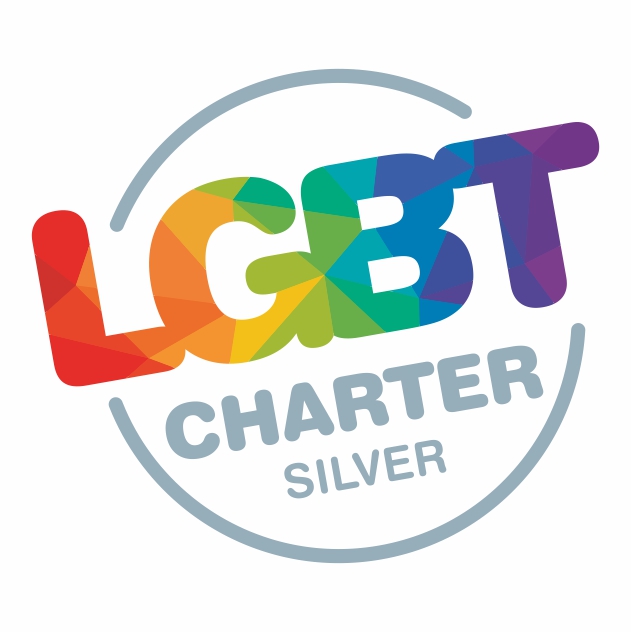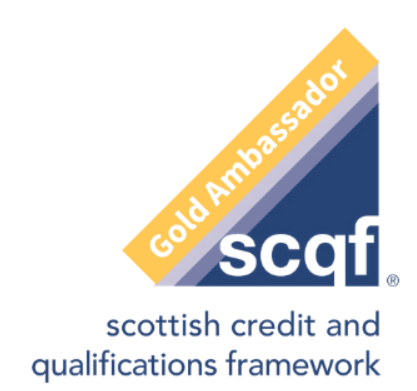OUR TEAM
- Mrs R Marley (Faculty Head)
- Ms L Purdon-Boyle (Acting Faculty Head)
- Mrs N Hamilton-Stewart
- Mr R Meikle
- Mrs M Healy (Pupil Support Manager - Lewis)
- Mr A Swan
- Miss R MacKay
- Mrs S McGeachy
- Mrs J Belcher (Pupil Support Manager - Lewis)
- Mr J Mathieson
- Miss J Harris
- Miss T Sinclair (Pupil Support Manager)
Why choose English?
English is an essential aspect of many career paths and most jobs require an English and Literacy qualification as an essential component. Core English and Literacy skills in Reading, Writing, Talking and Listening are embedded in every aspect of the English course.
In addition, many college courses require entrants to have studied English to National 4/5 level. Many university courses require students to study beyond National 5 level.
S1
In S1, pupils will engage in a course which covers the Literacy and English Experiences/ Outcomes outlined by Education Scotland. The course is designed to develop skills which will equip pupils to become successful learners in the senior school and will help prepare them for the world of work.
Skills in reading, writing, talking and listening are developed via a wide range of activities and texts.
S2
In S2, pupils will engage in a course which covers the Literacy and English Experiences/ Outcomes outlined by Education Scotland. The course is designed to develop skills which will equip pupils to become successful learners in the senior school and will help prepare them for the world of work.
Skills in reading, writing, talking and listening are developed via a wide range of activities and texts.
S3
Course
All pupils will follow a similar English course as part of a broad general education, covering level 4 Literacy and English outcomes and experiences. During S3 pupils will also overtake some of the National 4 and National 5 English outcomes.
Assessment of Course
Assessments will be completed in an ongoing way. The emphasis will be on developing each pupil’s skills in Reading, Writing, Talking and Listening as fully as possible before pupils move into classes for the National 4 or National 5 course in S4.
Progression
At the end of S3 pupils will progress to a course leading onto a qualification at National 3, National 4 or National 5 in English.
At the end of S4 pupils could choose from the following progression routes:
- A pupil achieving National 3 may progress to National 4
- A pupil achieving National 4 may progress to National 5
- A pupil achieving National 5 may progress to Higher
Homework
The regular setting of homework is an essential component of the English department’s programme of work and will be based on specific work being done by each class teacher. Homework can take a variety of forms. Examples of the types and length of homework which will be issued include:
- Completion of first / final drafts of Creative and Discursive Writing
- Reading of class texts
- Completion of Critical Essays based on class texts
- Preparation of topics for Individual and Group Talk
- Private Reading (nightly)
- Reading of newspaper articles to develop Close Reading skills
- Reading of Close Reading/Language Notes
- Close Reading tasks
- Research work in preparation for extended Writing tasks
Equipment
There is no special equipment required to complete the English course. Students are, however, expected to take care of textbooks issued to them and come to class equipped with a pen or pencil.
National 4
National 5
Click here to see a pupils views
Who is the course aimed at?
The course is mainly intended for students in Upper School who may have gained a National 4 award.
Aims
The National 5 Course enables learners to develop their literacy skills and to understand, analyse and evaluate a range of texts, including Scottish texts, in the context of literature, language and media.
The Course also enables learners to create and produce texts and to apply their knowledge and understanding of language.
Assessment of the Course
To gain the award of the Course, the learner must pass the two compulsory Units as well as the Course Assessment.
The compulsory units are:
Analysis and Evaluation
The purpose of this Unit is to provide learners with the opportunity to understand, analyse and evaluate detailed written and spoken texts.
There are two Outcomes that learners must achieve: Close Reading and Listening
Creation and Production
The purpose of this Unit is to provide learners with the opportunity to create and produce detailed written texts and to participate in spoken activities.
There are two Outcomes that learners must achieve: Writing and Talking
Course Assessment
The final SQA examination has 3 external components:
- Component 1 — Reading for Analysis and Evaluation (Close Reading of Non Fiction text) 30 marks
- Component 2 — Critical Reading on literature text and Textual Analysis of a Scots text 40 marks
- Component 3 — Portfolio comprising of 2 pieces of Writing submitted in April 30 marks
Total marks 100 marks
Higher
Click here to see a pupils views
Who is the course aimed at?
The course is mainly intended for students in Upper School who may have gained a National 5 ‘A’ or ‘B’ pass in the subject or an ‘A’ or ‘B’ pass at Intermediate 2.
There will be a 2 year Higher course available for any student who does not have a National 5 ‘A’ or ‘B’ pass.
Aims
The Course offers learners opportunities to develop and extend a wide range of skills. In particular, the Course aims to enable learners to develop the ability to: listen and talk, read and write, as appropriate to purpose, audience and context; to understand and evaluate texts, including Scottish texts, as appropriate to purpose, audience and context; and to apply knowledge and understanding of language.
To gain the award of the Course, the learner must pass the two compulsory Units as well as the Course Assessment.
The compulsory units are:
Analysis and Evaluation
The purpose of this Unit is to provide learners with the opportunity to understand, analyse and evaluate detailed written and spoken texts.
There are two Outcomes that learners must achieve: Close Reading and Listening
Creation and Production
The purpose of this Unit is to provide learners with the opportunity to create and produce detailed written texts and to participate in spoken activities.
There are two Outcomes that learners must achieve: Writing and Talking
Assessment of the Course
To gain the award of the Course, the learner must pass the two compulsory Units as well as the Course Assessment. The compulsory units are:
Analysis and Evaluation
The purpose of this Unit is to provide learners with the opportunity to understand, analyse and evaluate detailed written and spoken texts.
There are two Outcomes that learners must achieve: Close Reading and Listening
Creation and Production
The purpose of this Unit is to provide learners with the opportunity to create and produce detailed written texts and to participate in spoken activities.
There are two Outcomes that learners must achieve: Writing and Talking
Course Assessment
The course assessment is made of three components.
- Component 1
Paper 1: Reading for Understanding, Analysis and Evaluation
All questions will be mandatory. This paper has 30 marks.
Two non - fiction texts will be presented.
Questions on the texts will demonstrate the skills of understanding, analysis and evaluation.
- Component 2
Paper 2 — Critical Reading
This paper has two Sections. In each Section, one question will be chosen from a range of questions. In each Section, learners must cover a different genre.
Section A - Critical Essay
Learners will answer one question from a range of questions covering the genres of drama, prose, poetry, film and TV drama, and language. Learners will provide an extended written response, based on a previously studied text
20 marks
Section B – Scottish Texts
Learners will answer one question from a range of questions on drama, prose and poetry, based on a list of prescribed Scottish texts.
20 marks
- Component 3
Portfolio
Learners will produce a portfolio, comprising two pieces of writing; one creative and the other persuasive. The purpose of the portfolio is to assess learners’ writing skills in different genres, and for a range of purposes and audiences. The assessment will be internally generated and externally assessed.
30 marks
- Higher English Critical Essay Marking Criteria
- Higher English Folio Marking Criteria
- Higher English Plagiarism
- Higher English Scottish Text Advice on 10 Mark Question
- Higher English Suggested Reading List
- N5 Higher English Scottish Set Text List
Advanced Higher
Click the link for more information:
https://drive.google.com/file/d/1IC246z-Ppp3grW8k7rZjZrX9syNpkd9u/view?usp=sharing
What is the purpose of the course?
Study of the course at Advanced Higher will allow learners to further develop the skills of analysis and evaluation acquired at Higher English level.
Who is the course aimed at?
The course is intended mainly for students who have successfully completed the course at Higher level and achieved a pass at ‘A’ or ‘B’ level.
Aims
The study of English at Advanced Higher level gives learners the experience of advanced studies in literature and independent study. Learners will study a number of prescribed texts in drama, poetry and prose. Learners who pursue study at this level will encounter considerable academic and personal challenges. Those who achieve passes at this level will have demonstrated knowledge and skills of a high order and also considerable ability in thinking and working independently.
Assessment of the Course
There are three component Units in the course: two mandatory 40 hour Units (English: Specialist Study and English: Literary Study) and one optional 40 hour Unit (to be selected from English: Language Study, English: Textual Analysis, English: Reading the Media, English: Creative Writing).
The course assessment is made of three components.
Component 1: Literary Study
Candidates will answer within one and a half hours and without access to the texts one unseen question from a range of unseen questions requiring knowledge of previously studied literary texts.
Component 2: Specialist Study
Learners will submit to SQA for assessment a dissertation on their chosen topic. This will have been authenticated as having been produced in a manner that satisfies the evidence requirements of the Unit.
Component 3: Choice from Unit Description
Assessment on the third Unit choice will be from those listed above in the Unit Description.
Higher Media Studies
In the Media course, learners will:
✔Analyse media and consider all elements surrounding the planning, production and advertising of this content.
✔Work independently to create their own media content.
Why chose Media?
✔ You have an interest in film
✔ You enjoy working as part of a team and independently
✔ You have a desire to know more about what goes on ‘behind the scenes’
✔ You have strong analytical skills
The Higher Media course is split between the final exam and the assignment - each is worth 50%.
In the exam, candidates analyse media texts (films, adverts, posters) studied in class.
For the assignment, candidates apply the skills acquired through the course to research, produce and evaluate their own media content. This media content can be in the form of a short film, film trailer or a movie poster.
Contact Mrs Belcher gw12belcherj@glow.sch.uk or
Ms Hunter gw07hunterj@glow.sch.uk for more information.








